Students began the project by choosing a Keith Haring figure to replicate. They cut their shape out of cardboard, creating a front and back for their sculpture. To give the sculpture some thickness, students used strips of tag-board, rolled between the layers of cardboard. The sides of the sculpture were sealed using masking tape. Once the sides were taped up, students could begin using the papier-mâché paste. We used a 3:1 glue and water mixture to create our paste. Students dipped strips of brown paper towel into the paste to drape around their sculptures. This was a time-consuming and messy process, but the students did a great job. Once the papier-mâché had dried over-night, students could begin painting. I initially told students to paint the figure one color, and add a bold, black outline, characteristic of Haring's work. As students began discussing ideas to decorate the figure, I was reminded of Haring's patterns within some of his outlined figures. I encouraged students to come up with their own creative ideas for decorating the sculptures and I love how they turned out! This has been one of my favorite OES Art Club projects so far. I am looking forward to teaching students more about Keith Haring this spring when we begin our unit on Pop Art. Check out the video below for more photos from this fun project!
0 Comments
Just before school started, my mind was racing with project ideas to kick off the year. I wanted each grade level to have an engaging first project, relevant to our curriculum, but also share a common theme. As project ideas started coming together, I created lessons for: kindergarten, first, fourth, fifth and sixth grade classes, around the theme of hands. Sixth Grade: Pop-Artist, Keith Haring Over the summer, I found a t-shirt with a Keith Haring graphic. The graphic depicted a hand, with fingers crossed, in front of a bold red circle. Around the hand were Haring's famous marks, and above was his signature. I knew this could be a great project for sixth grade, as they study Pop Art in the spring. I decided to incorporate American Sign Language in with the lesson and asked students to illustrate a sign, using Haring's graphic style and mark-making. Each student chose a sign from printed examples and library books. Students practiced drawing and coloring their illustrations in their sketchbooks before attempting the finial painting. Students then painted a single-color circle behind their chosen sign, and used permanent marker to outline their illustration and add Haring-inspired marks for excitement and/or movement. Each student finished the project with a large artist signature on their paintings. Fifth Grade: Street-Artist, Michael Owen 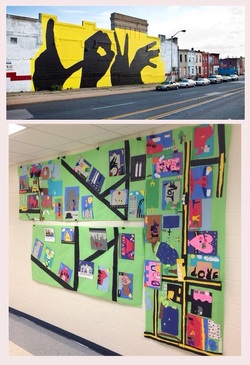 I discovered Michael Owen's Baltimore Love Project online this summer. I thought this would be a great opportunity to introduce students to a contemporary artist impacting his community with a social message. Fifth grade students looked at photographs and watched a video clip about the project before creating their own murals. Paper buildings were made using 9x12" construction paper. I gave each student a printed example of the alphabet using hand shadows, similar to Michael Owen's murals. Students were asked to create a mural using hand shadows to paint a word of their choice on their paper building. Once the paint was dry, students were asked to create an environment for their building. Buildings ranged from city skyscrapers to country farm houses. Details were cut and glued on using construction paper scraps. Students worked together to create a large town map using their finished projects. Fourth Grade: Hamsas from India Fourth grade students begin their study of non-Western cultures by looking at art from India. A hamsa is a talisman in Indian culture thought to protect the owner. Depicting the open right hand, this image is found in many cultures throughout the world. Students carved several symbols to represent themselves and their interests. We used cardboard, aluminum foil and colored permanent markers to create the artwork. Once students had completed their foil hamsas, they chose a background color to mount their artwork on. We reviewed the concept of radial design, one we will continue using throughout the year. First Grade: Modular Sculpture
Kindergarten: Action-Painter, Jackson Pollock Kindergarten students begin the school year learning how colors are made. We read the story Mouse Paint by Ellen Stoll Walsh, about mice who learn how to mix paint using the primary colors. I decided to try a Jackson Pollock-inspired marble painting with my kindergarten class. We used the primary colors of paint to begin our project. Each student was given a plastic box with a sheet of white paper inside. Then the student rolled a painted marble inside the box until all of the paint had transferred from the marble to the paper. We repeated this step with each of the primary colors: red, yellow and blue. Once the paintings were dry, students traced their hand-prints onto the back of the paper and cut the shape out. We mounted the hand-prints on primary colors of construction paper.
|
Mr. DeWilde's Blog
Archives
June 2024
|
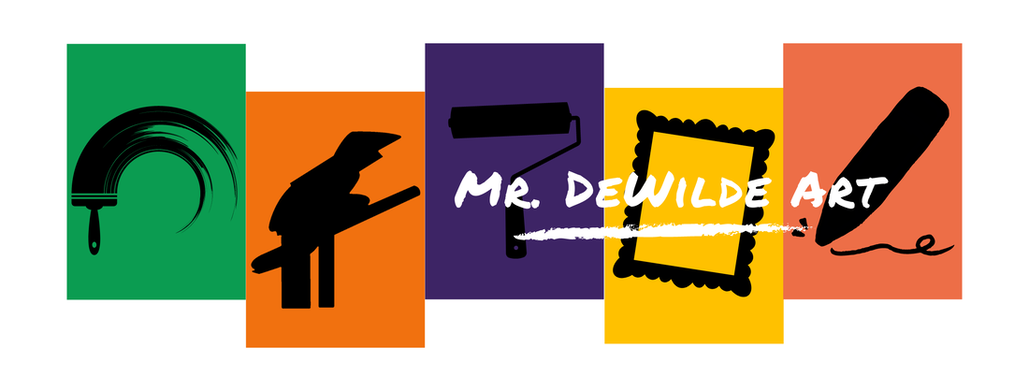
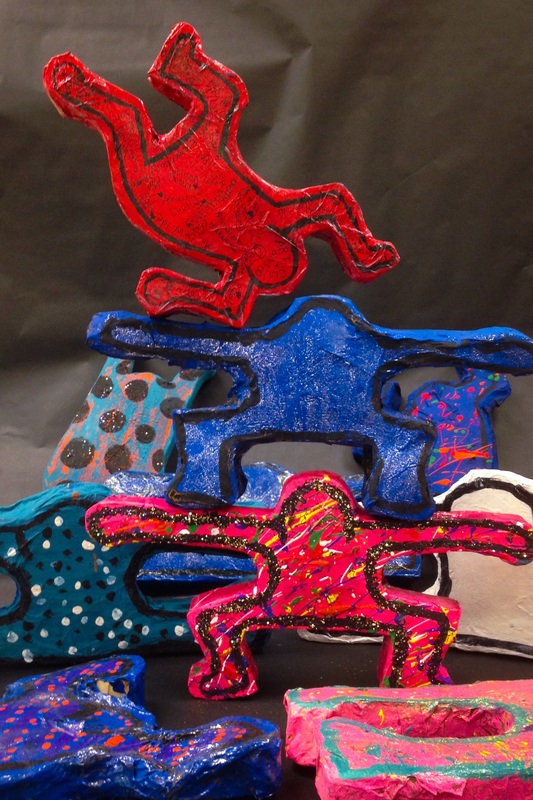
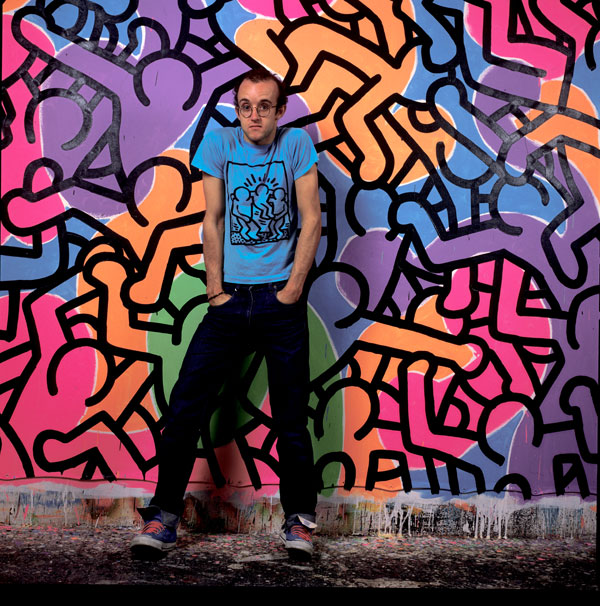
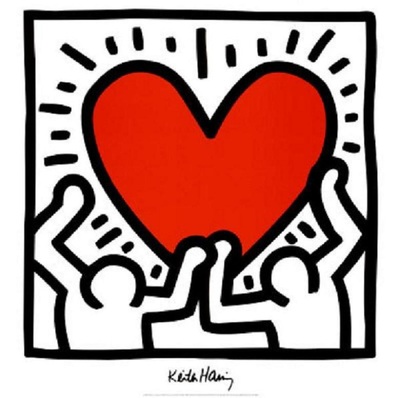
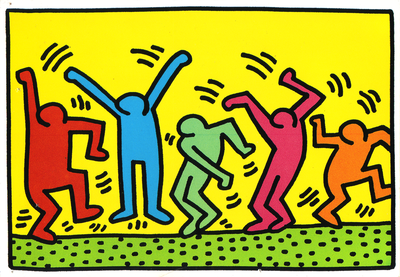
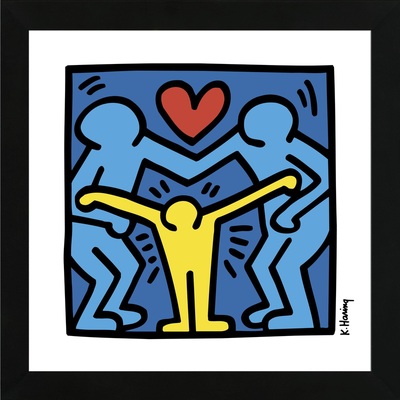
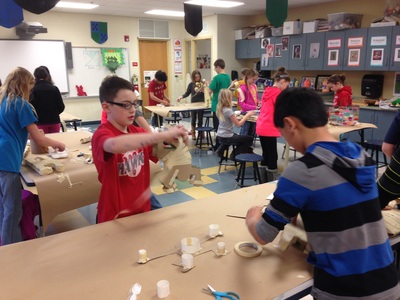
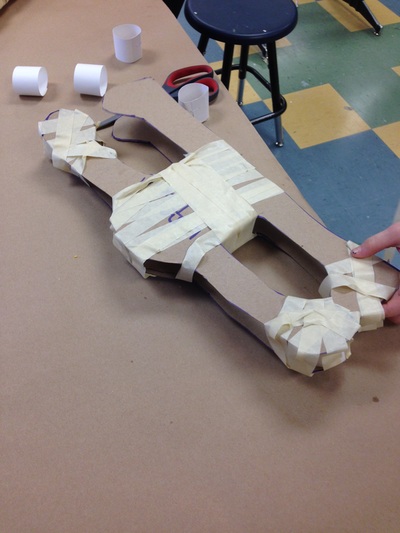

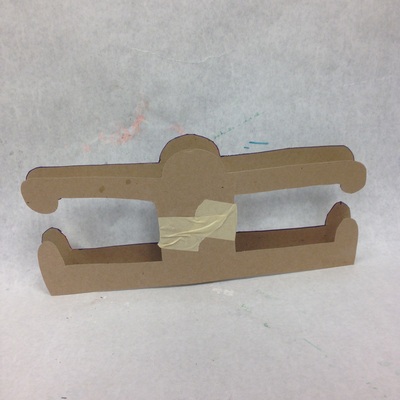
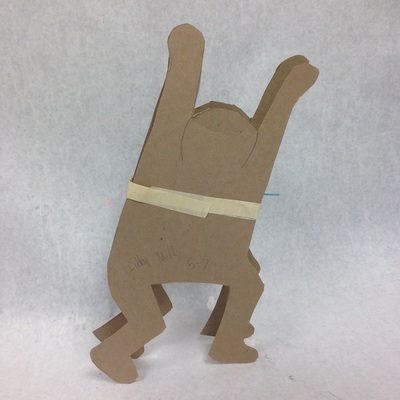
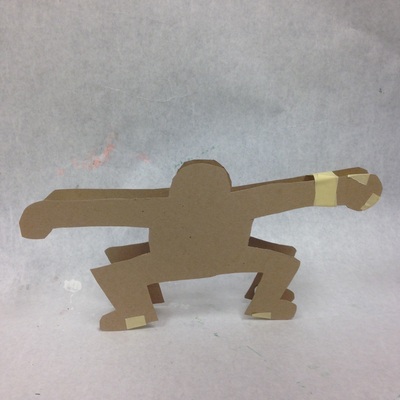
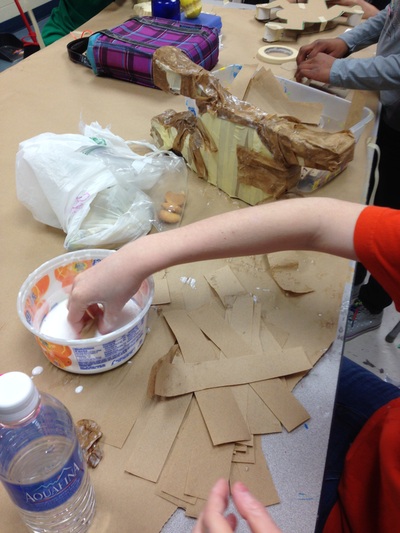
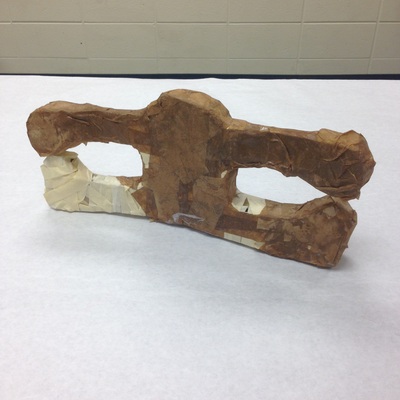
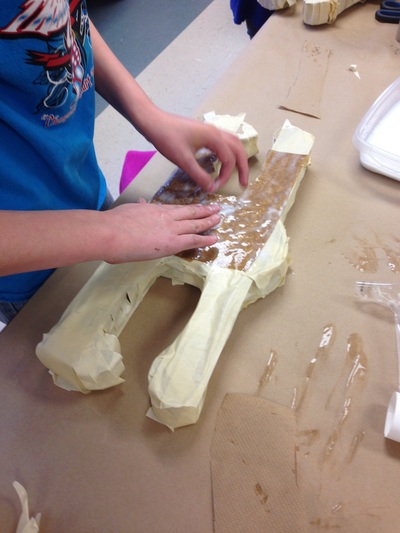
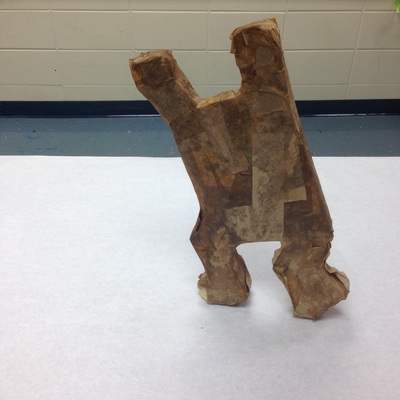
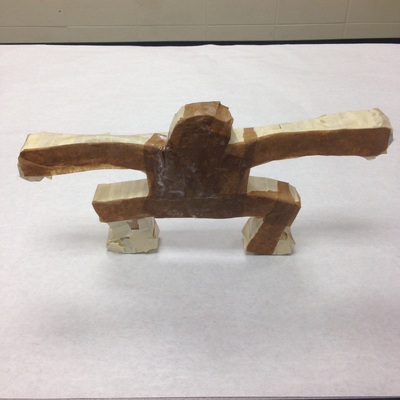
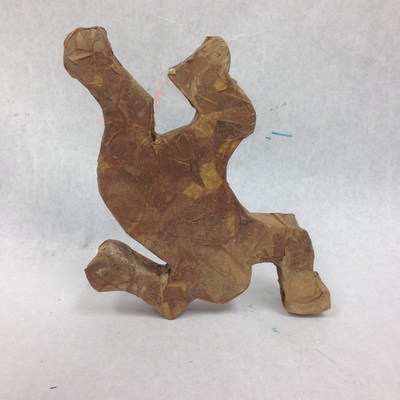
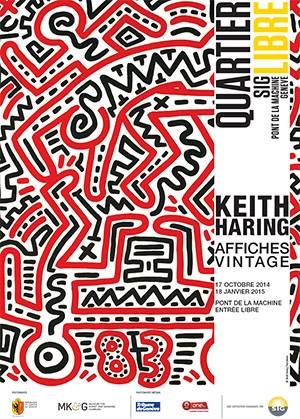
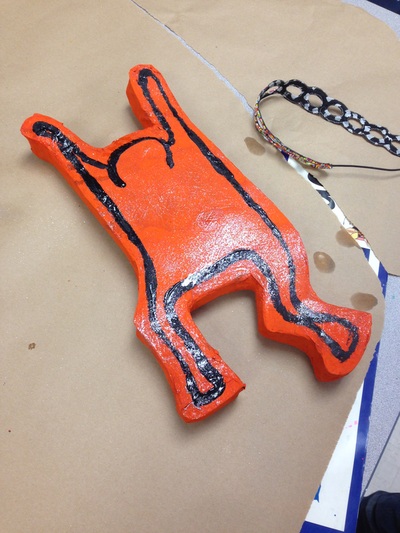
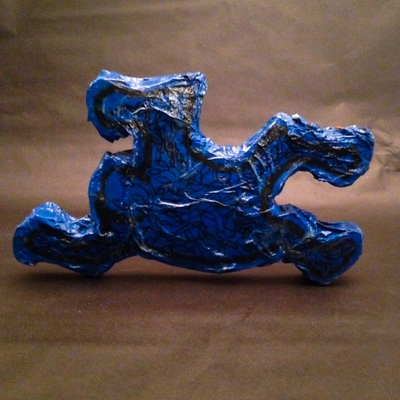
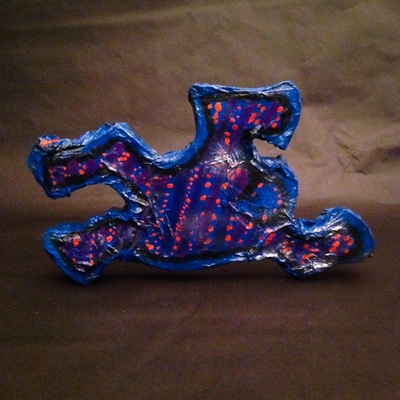
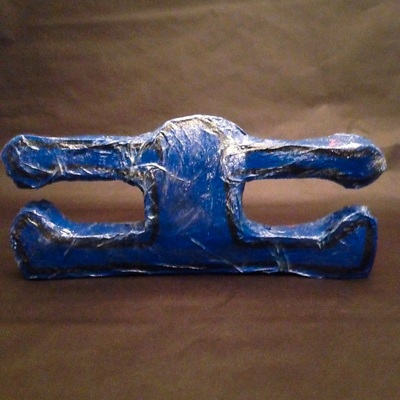
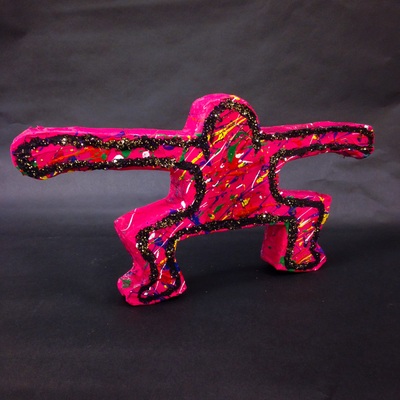
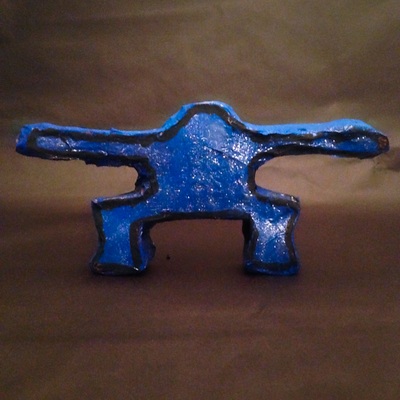
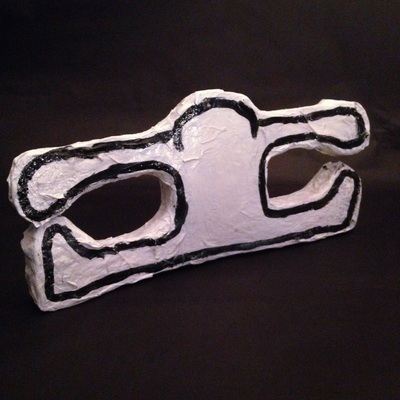
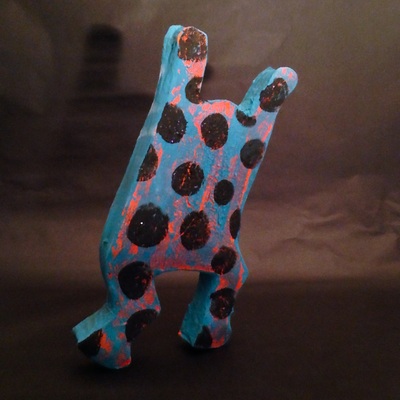
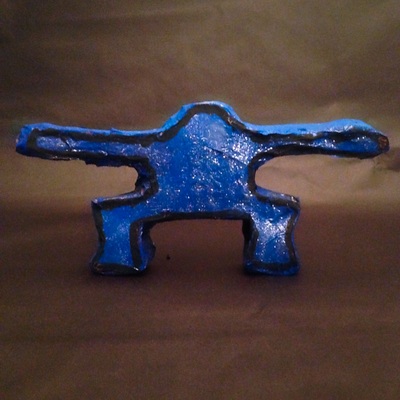
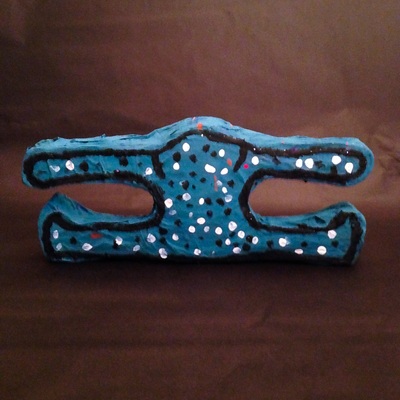
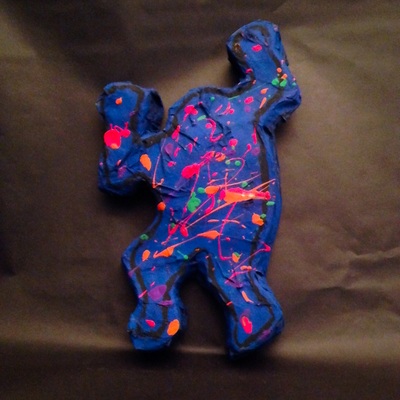
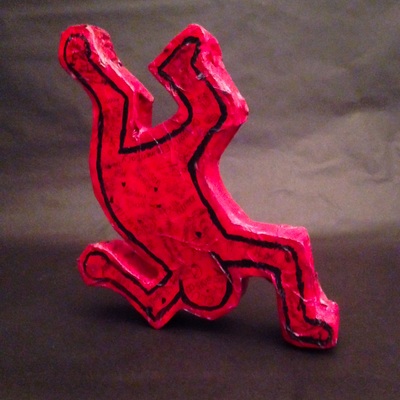
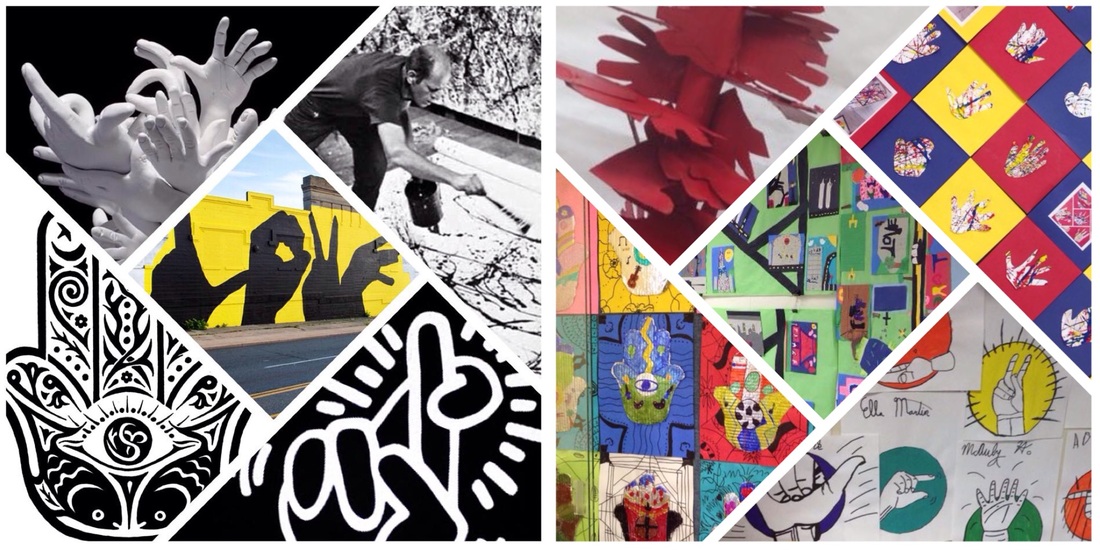
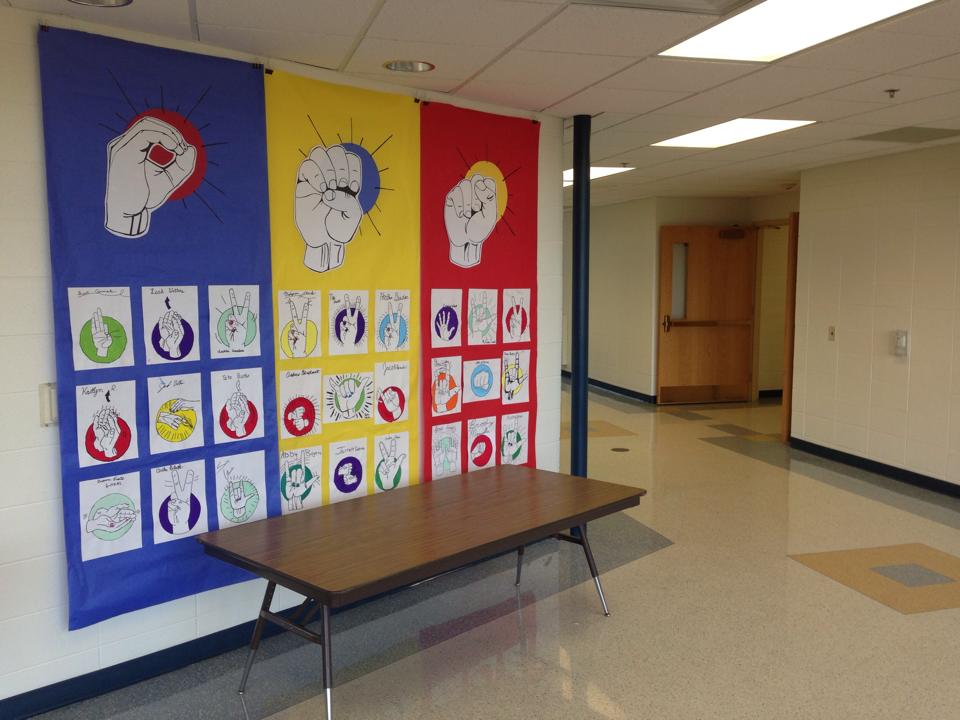
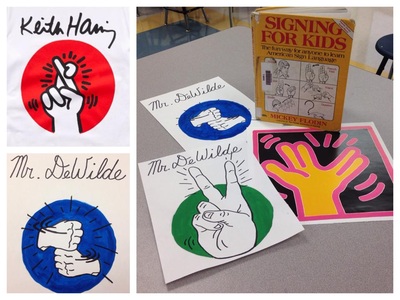
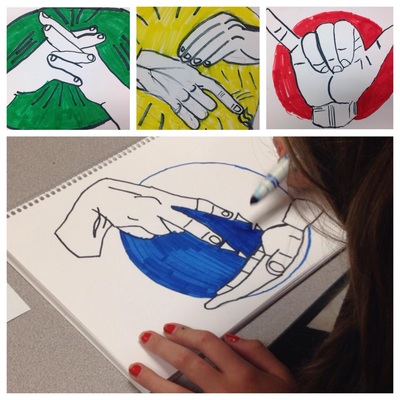
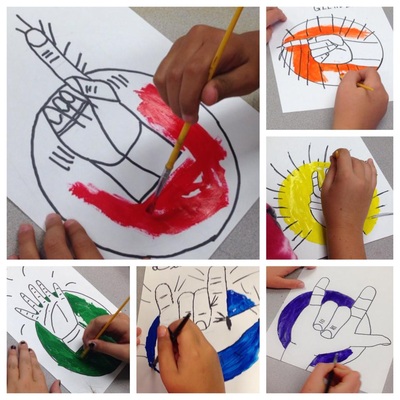
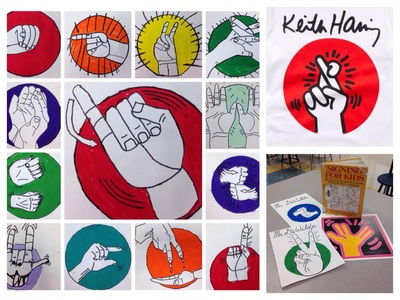
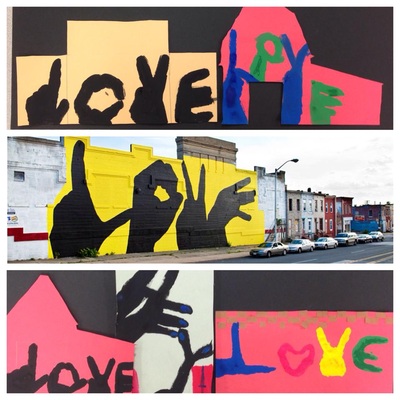
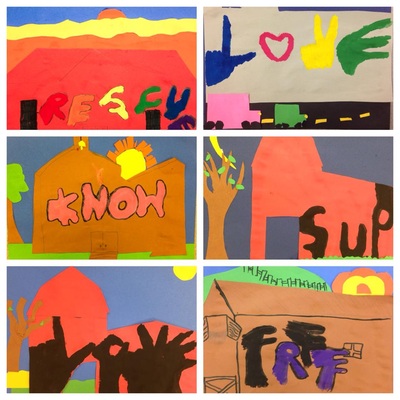
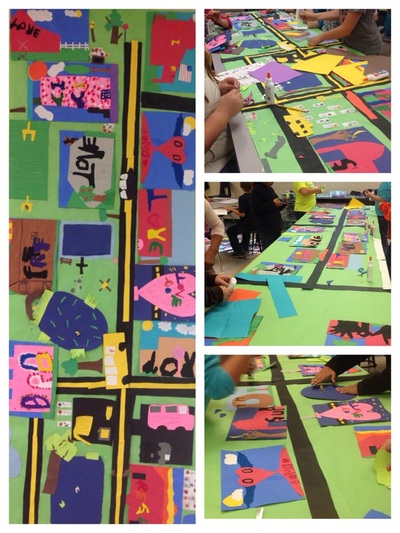
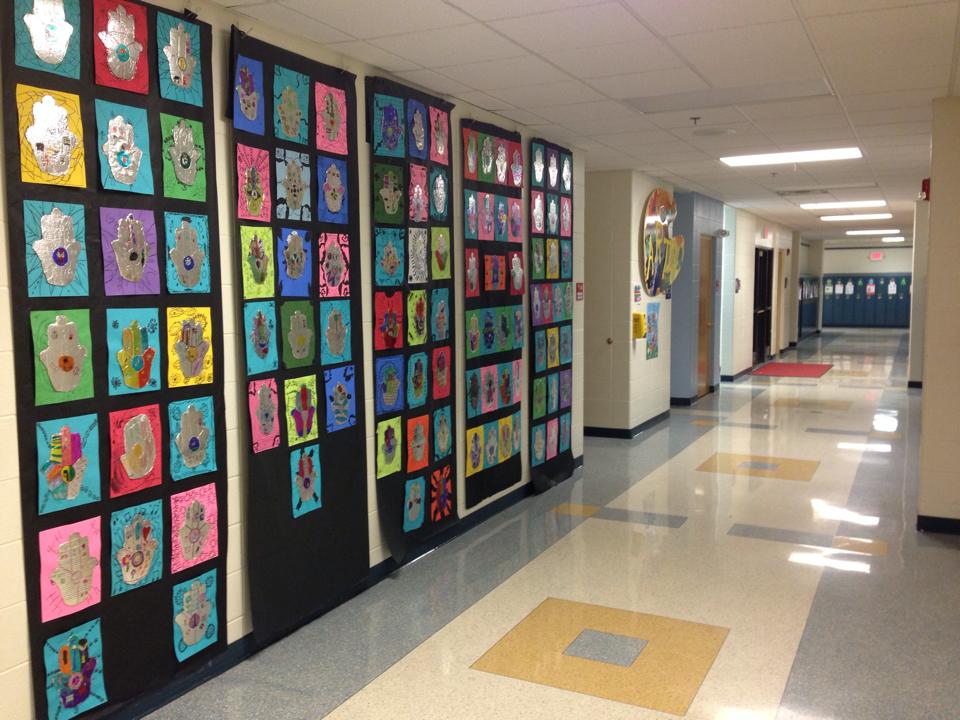
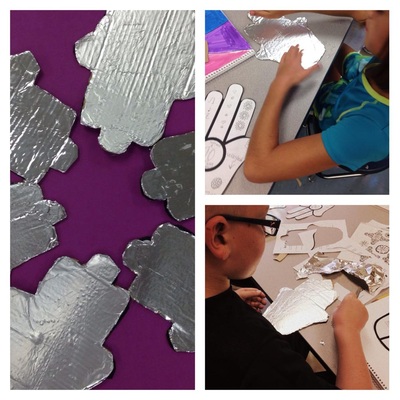
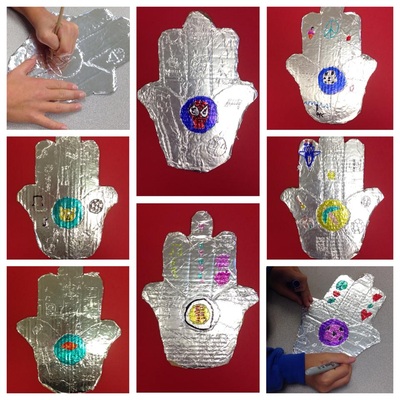
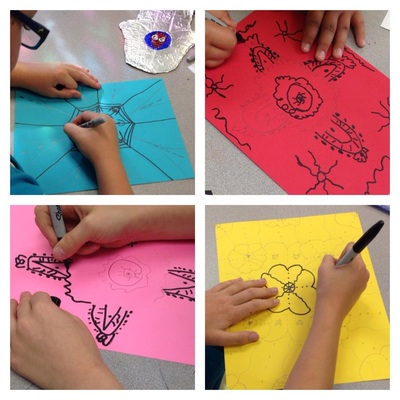
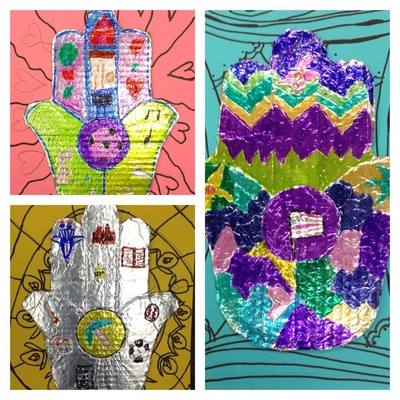
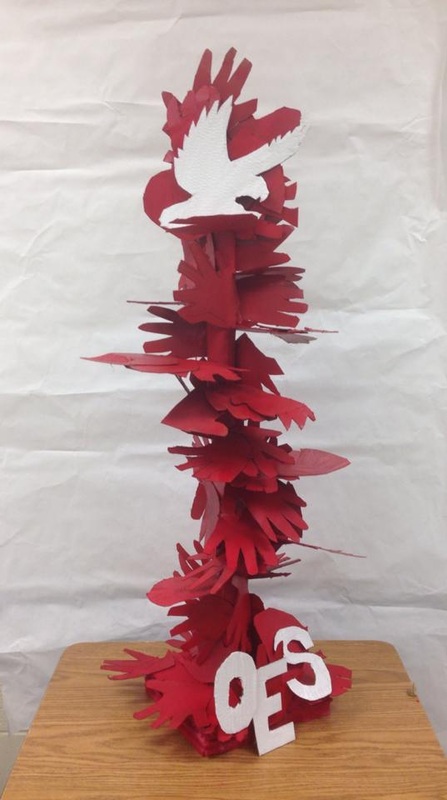
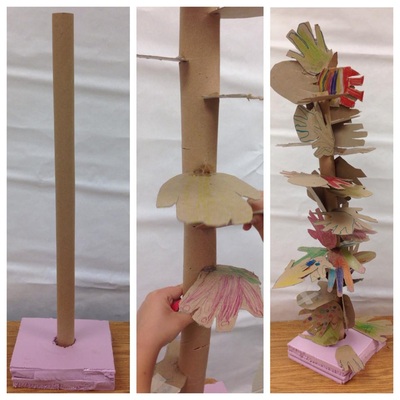
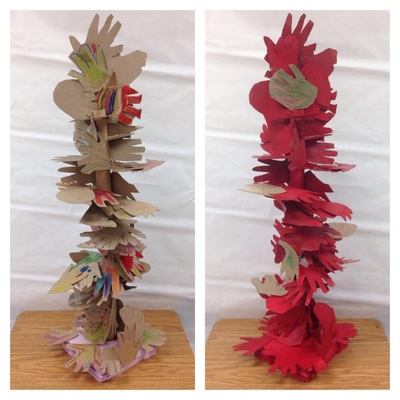
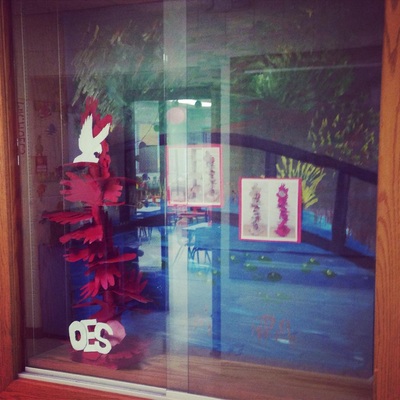
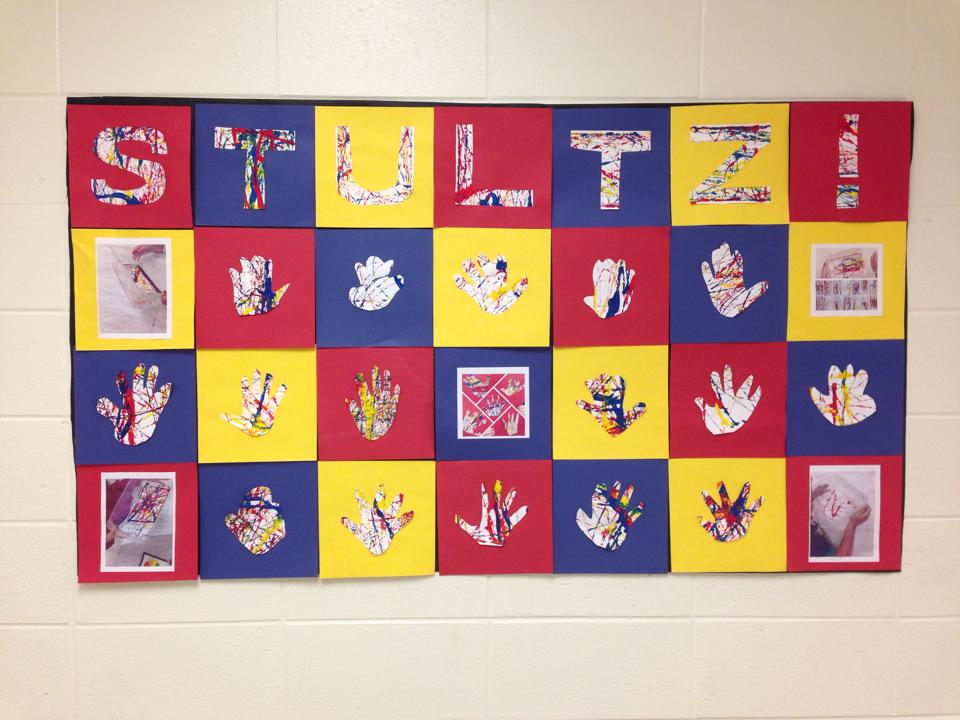
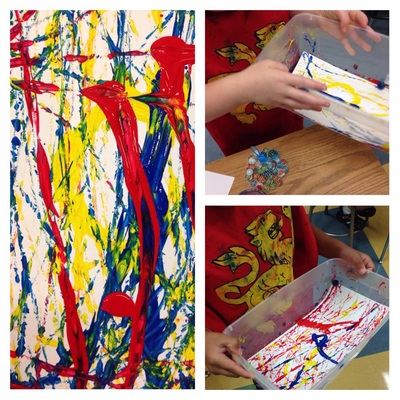
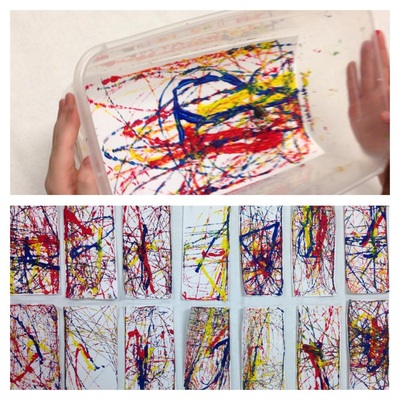
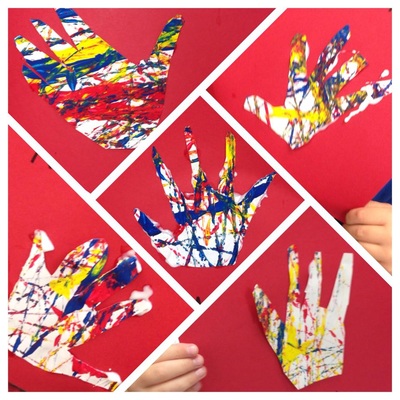
 RSS Feed
RSS Feed